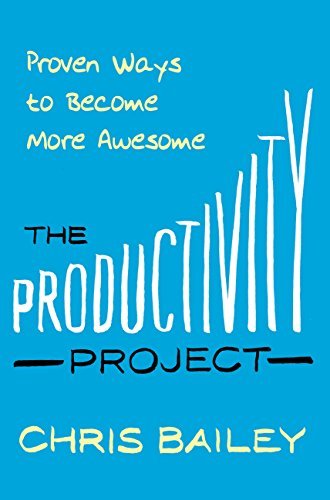What do you think?
Rate this book


Nearly all of us want to be more productive, but finding the method that works for you among the hundreds and hundreds of different tips, tricks and hacks can be a daunting prospect. After graduating college, Chris Bailey decided to dedicate a whole year to doing just that - experimenting with as many of the techniques as he could, and finding the things that work. Among the experiments that he undertook are: going several weeks on little to no sleep; cutting out caffeine and sugar; taking a daily siesta; living in total isolation for 10 days; stretching his workweek to 90 hours; and getting up at 5:30 every morning, all the while monitoring the impact of his experiments on the quality and quantity of his work. The results were often surprising!
This book is the result of Chris's year-long journey, distilling the lessons he learned into a few core truths about how we get things done (or, indeed, don't). Among the many counterintuitive insights Chris discovered that had the biggest impact on his productivity were striving for imperfection; scheduling less time for important tasks; the 20 second rule to distract yourself from distractions; and the concept of productive procrastination.
In this accessible and fun guide, Chris Bailey offers over 30 tried-and-tested best practices that will help everyone to accomplish more - and become more awesome.
306 pages, Kindle Edition
First published January 5, 2016
It's pretty difficult to become more productive day in and day out when you don't care about what you want to accomplish on a deeper levelThe best way to measure your productivity is to ask yourself at the end of the day: Did I get done what I intended to do?
Creating more attentional space around your highest-return activities will help you come up with better ideas. The reason we tend to come up with a lot more great ideas in the shower compared to when we’re on a smartphone is simple: when we’re taking a shower, we create enough attentional space for our mind to wander and for new ideas and thoughts to bubble up to the surface. Simplifying your life of low-return tasks has a similar effect. Doing so not only allows you to dedicate more time and attention to your highest-return tasks; it also helps you generate more great ideas for them.